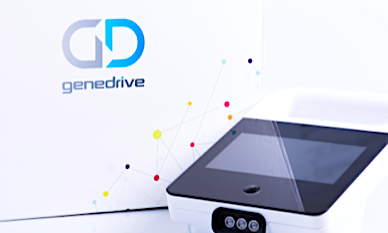Shares of Manchester-based molecular diagnostics company Genedrive rose about 30% after it announced it has commenced engagement with the US Food and Drug Administration (FDA) “to progress the regulatory approval of the Genedrive MT-RNR1 ID Kit into the USA.”
“The Genedrive MT-RNR1 assay is the world’s first rapid point-of-care test to screen infants in an urgent care setting for a genetic variant that will cause life-long hearing loss when carriers of the variant are given certain antibiotics,” said the Manchester company.
“Those that carry the variant can then be given alternative treatments following detection of the variant by the Genedrive MT-RNR1 test.
“It has the potential to save thousands of children from lifelong hearing loss, whilst providing a net positive financial outcome case to healthcare systems.
“Genedrive has submitted via the FDA’s Pre-Submission process (Pre-Sub) because there is no exact comparable test in the market already.
“The Pre-Sub process allows the company an opportunity to clarify its testing and validation approach, confirm the appropriate regulatory application pathway (510(k) vs De Novoapplication) and gain additional procedural feedback from the FDA with the aim of making the final submission process more efficient.
“In 2021, 3.7 million babies were born in the USA, with 10.5% born prematurely.
“It was estimated that malpractice litigation settlements in cases related to deafness caused by the use of aminoglycosides average over US$1.1 million per case, further adding to the positive health economic case of providing accurate and timely testing to reduce unwanted side effects of gentamicin usage.”
Genedrive CEO David Budd said: “The US is a particularly attractive market for this unique test given the potential to save hundreds of individuals from life-long deafness and reduce litigation costs relating to the unwanted side effects from antibiotic use on those carrying the gene variant.
“Either an FDA 510(k) clearance or the granting of a De Novo request is required to allow us to market this test in the US. Ultimately, we feel that the US market is potentially the most attractive market given its size, birth rates, use of diagnostic testing and reimbursement structure.”
